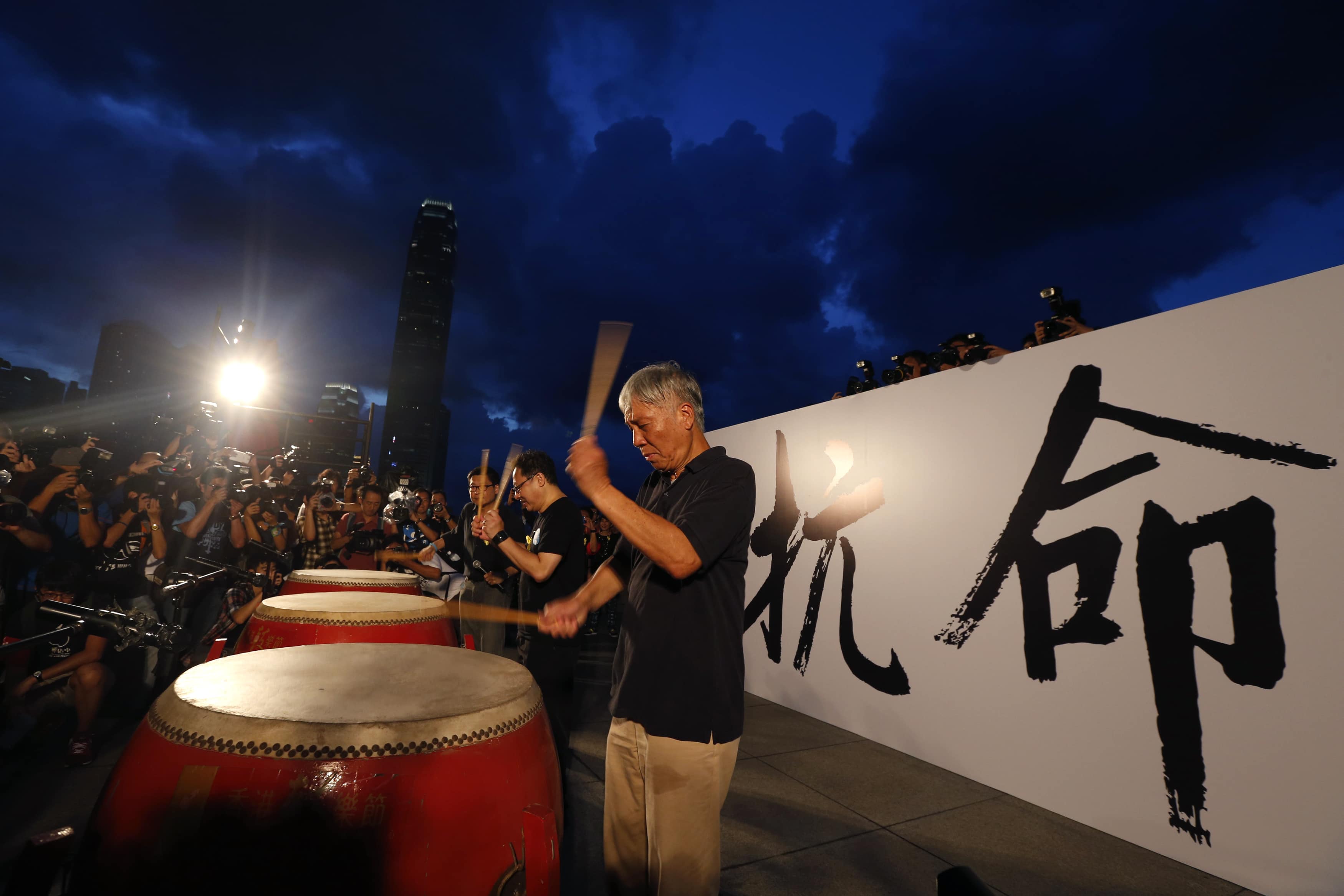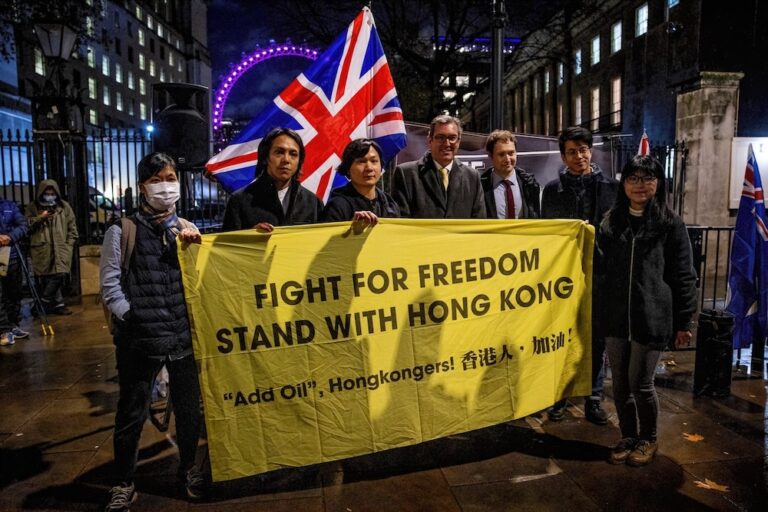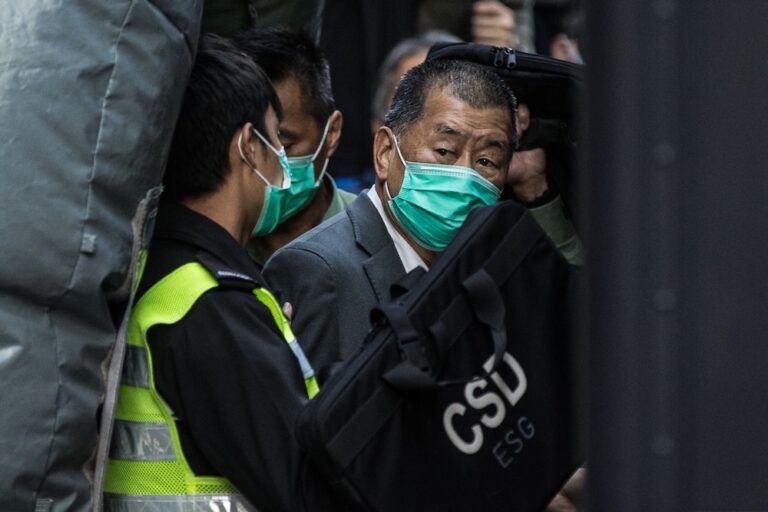China's Congress recently ruled that candidates for Hong Kong's Chief Executive must be nominated by a committee composed mostly of pro-Beijing individuals, quashing hopes for an open election in 2017. The decision comes after months of protests and a mock referendum in Hong Kong.
By Jeremy Paltiel, 3 September 2014
On August 31, 2014 China’s Congress ruled that candidates for Hong Kong’s Chief Executive must be nominated by a committee composed mostly of pro-Beijing individuals, quashing hopes for an open election in 2017. The decision comes after months of protests and a mock referendum in Hong Kong. But as the most recent development proves, even a direct election cannot guarantee “genuine choice.”
In this blog, Carleton University political science professor Jeremy Paltiel considers the challenges of democracy to rising China and borrows some words of advice the sage Confucius offered more than 2500 years ago.
The challenge of democracy to rising China
I have heard that rulers of states and chiefs of families are not troubled lest their people should be few, but are troubled lest they should not keep their several places; that they are not troubled with fears of poverty, but are troubled with fears of a want of contented repose among the people in their several places. (The Analects of Confucius, IV 16.)
Predictions of China’s rise to become the preeminent world power are commonplace. Its leader, Xi Jinping, touts the “Chinese Dream” as “everyone’s dream.” Just next door, however, in the Special Administrative Region of Hong Kong, 800,000 of the People’s Republic’s citizens recently held a demonstration to show they would like nothing more than to wake up from an experience that increasingly resembles a nightmare.
In the negotiations on Hong Kong’s retrocession from Great Britain to China, Beijing promised its new citizens a “high level of autonomy” and their own administration in Hong Kong. This was enshrined in the Basic Law of Hong Kong (the mini constitution for Hong Kong passed by the National People’s Congress, China’s legislature, in Beijing). On Dec. 29, 2007 the Congress’ Standing Committee resolved that from 2017 onwards, the election of the Chief Executive of Hong Kong “may be implemented by the method of universal suffrage.” Understandably, those who have endured Hong Kong’s unaccountable administrations, led by figures of sometimes dubious competence, have been looking forward to transforming that “may” into a “shall.”
Since 1997, a series of invertebrate Chief Executives have been elected by an electoral college handpicked by Beijing. Their compromised legitimacy has meant that these figures rush for Beijing’s guidance at the slightest whiff of controversy, rather than working locally to find a viable political compromise. This has frustrated Beijing’s hopes of governing benignly and benevolently from afar as much as it has inflamed Hong Kong’s frustrated ambitions for self-governnance. However, Beijing’s mitigations have only polarized local politics. Put plainly, Beijing is much less interested in intervening with Hong Kong’s political practices than with preventing their spread. It was only when a group of local activists launched Occupy Central, in Hong Kong’s Central business district, that Beijing was goaded into action.
Occupy Central activists had learned from their American counterparts. But instead of a call for social and economic equality, they demanded direct election of the Chief Executive. The movement soon gained further momentum with support from Taiwan, a democracy China perceives as an estranged province. Taiwan’s Sunflower Movement had used similar tactics when occupying the legislature in a bid to block a Cross- Strait trade agreement with Beijing.
For when the people keep their several places, there will be no poverty; when harmony prevails, there will be no scarcity of people; and when there is such a contented repose, there will be no rebellious upsettings. (The Analects of Confucius)
Ten days before a major Occupy protest in early June, Beijing released the White Paper. The guideline from China’s Executive Cabinet reaffirmed Hong Kong’s universal suffrage as a goal – under certain conditions. The White Paper made clear that China was a unitary state with Hong Kong operating under the PRC’s trademark “one country, two systems” formula. However, crucially, Beijing reserved for itself the right to interpret this formula. “There are lines and criteria to be observed in implementing ‘Hong Kong people governing Hong Kong,'” according to the White Paper. “In a word, loving the country is the basic political requirement for Hong Kong’s administrators.”
Beijing has consistently rejected “Western style democracy” as if it were a fashion trend not a system of governance
Clearly, Beijing aims to circumscribe Hong Kong’s responsible government within the ambit of its own interests. Hong Kong’s autonomy and its Chief Executive remain subordinate to the PRC, and the Central Government can and will determine candidates’ eligibility regardless of how universal suffrage is implemented. For example, in the PRC, local congresses are directly elected by universal suffrage, but the composition of the ballot remains in the hands of a commission run by the Communist Party. These kinds of arrangements prompted the Deputy Secretary General of China’s National People’s Congress to argue that direct elections of Hong Kong’s Chief Executive would compromise national security, and to declare that China would not be intimidated by Occupy Central’s illegal activities. Beijing has consistently rejected “Western style democracy” as if it were a fashion trend not a system of governance. To inoculate its citizens against the West, the PRC has pressured businesses to withdraw advertising from pro-democracy websites. In addition pro-Beijing forces have mobilized their supporters to demonstrate against Occupy Central.
So it is. Therefore, if remoter people are not submissive, all the influences of civil culture and virtue are to be cultivated to attract them to be so; and when they have been so attracted, they must be made contented and tranquil. (The Analects of Confucius)
Faced with evidence that the people of Hong Kong and Taiwan distrust the self-regarding benevolence being marketed by Beijing, the PRC continues to tailor the news to fit its image. It denounces the discontented rather than reach out to meet their demands, and it arrests anyone who promotes “universal values” emanating from the West. Lawyers such as Pu Zhiqiang and Xu Weiyong have been thrown in jail for defending rights protected under China’s own constitution and for arguing that public officials should register their private assets. In the past 18 months, the Communist Party leadership has netted more than 35 officials of ministerial rank and higher in a massive anti-corruption campaign, yet those who call for these officials to be held publicly accountable often end up in jail.
The consternation of the authorities in Zhongnanhai at the seat of the Communist Party of China should give Xi Jinping pause. Their impudent defiance of compatriots in Hong Kong and Taiwan, not to mention the temerity of neighbours like the Philippines and Vietnam, who insist on the rule of International Law in the South China Sea, may well prove their undoing. Beijing must appeal to universal human values, if not to win over its neighbours and compatriots, then to establish policies that harmonize with the injunctions of the sage Confucius.
Jeremy Paltiel is Professor of Political Science specializing in the politics, government and foreign policies of Asia (China and Japan) and development politics.



